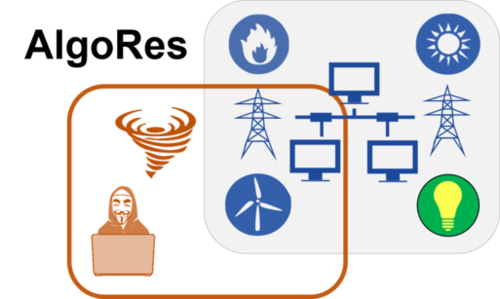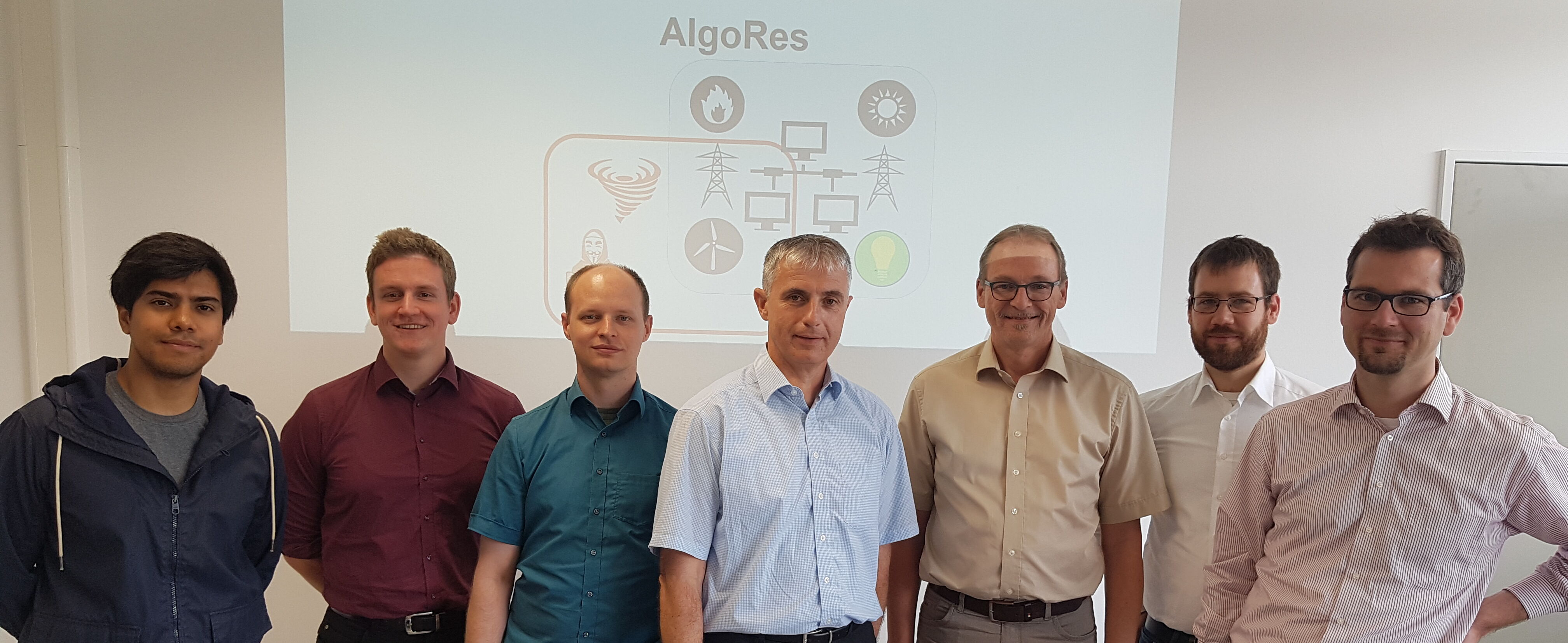AlgoRes
How resilient are current control algorithms for power grids?

Modern control systems operate with a high degree of autonomy. While such controllers deliver optimal performance at minimum cost in normal operating conditions, recent events have shown that failures in subsystems can lead to chain reactions that cause serious malfunctions of the whole system eventually. The research project AlgoRes investigates algorithms for the control of large-scale power grids, analyzing their vulnerability with respect to high impact, low probability events (HILP), such as natural disasters or cyber attacks.
The goal is to develop novel tools for the robustness analysis of the underlying control logic of such systems. The analysis tools shall then be used to design new control algorithms with improved resilience. Special focus is laid on intentionally generated contingencies, like cyber attacks. Control systems for power grids represent large-scale, constantly changing IT-systems that are spread over a large number of power plants, grids operators and grids users. In this context, AlgoRes focuses on completely distributed control systems, i.e. systems without a dedicated central controller that would represent a single point of failure and a prime attack target.
The research work of AlgoRes will be organized along the several subproblems of power grid control, e.g. the stabilization of fast dynamics, grid frequency regulation, or load flow control in distributed networks. First, we will define control targets and plausible threats. Then, we will study the resilience of the resulting dynamical systems based on known and novel assessment methods. Improved design strategies for distributed control systems will be developed and tested with simulations. Insights and control ideas will finally be demonstrated with on an existing distribution grid controller. Additionally, the obtained knowledge in distributed control will be transfered and applied to the likewise safety-critical food production supply chains.
The results of AlgoRes will on the one hand improve the resilience of power grids, one of the most important ciritcal infrastuctures of our societies today. In addition, the investigation and development of resilient control schemes will support the automation and control suppliers, a traditionally strong segment of the German economy, to be optimally prepared for digitalization.
Project AlgoRes
Algorithmic Resilience of Decentral Autonomy
Funded by the German Ministry of Education and Research (German: BMBF).
Duration: 05/2019-04/2022
Partners: Technical University Darmstadt (lead), Siemens AG, Entega AG.
Team on picture above
From left to right: Edwin Mora, Amer Mesanovic, Johannes Börner, Bernhard Fenn, Rudolf Sollacher, David Petermann, Florian Steinke.



